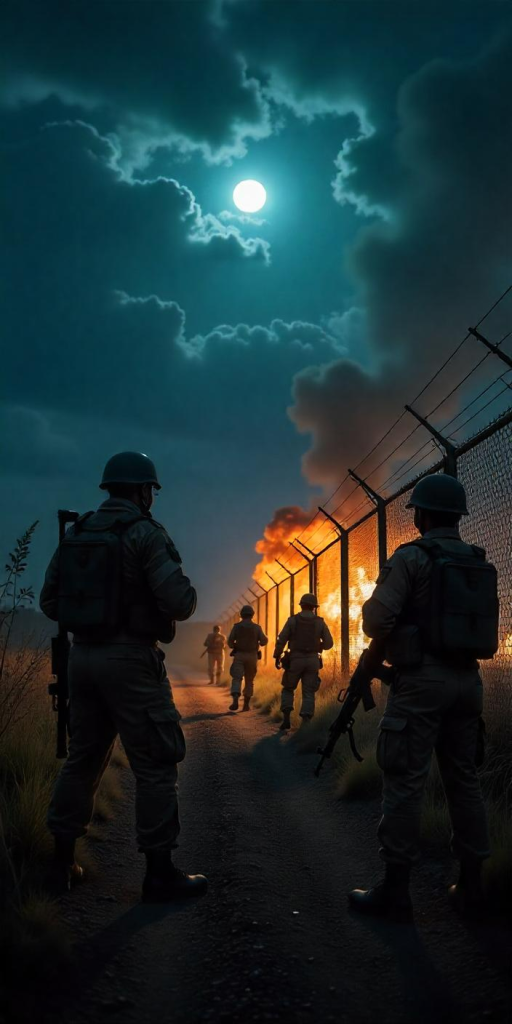by Muhammad Mohsin Iqbal
India’s history of crafting elaborate narratives to malign Pakistan and justify its aggressive postures has been an ongoing concern for regional stability. The recent tragic incident in Pahalgam, Kashmir, where tourists came under fire, is yet another episode in a long series of orchestrated events that serve as pretexts for provocations against Pakistan. Indian media and political leadership wasted no time in launching a disinformation campaign, hastily blaming Pakistan without any credible investigation or evidence. This false flag operation, thinly veiled as a terrorist attack, is now being used to whip up nationalist sentiment and prepare grounds for a so-called “surgical strike”—a tactic that India has previously employed to distract its public from internal unrest and international embarrassment.
Pakistan has consistently condemned terrorism in all forms and has made monumental sacrifices in its fight against extremism. Any attempt to link Pakistan to the Pahalgam attack is not only irresponsible but deeply provocative. It reflects a pattern of behavior where India stages incidents or manipulates events, only to then act as judge, jury, and executioner, often at the cost of peace in South Asia.

This is not the first time India has resorted to such theatrics. One of the earliest and most glaring examples was the infamous Ganga plane hijacking of 1971. The Indian Airlines flight was reportedly hijacked by two Kashmiri separatists and taken to Lahore. The hijackers later surrendered to Pakistani authorities, but India promptly used the incident to ban Pakistani overflights, effectively choking off West Pakistan from East Pakistan and strategically aiding its campaign in what became the secession of Bangladesh. Years later, Indian intelligence and former officials admitted the possibility of the hijacking being an inside job designed to serve a larger political purpose. This deceitful episode cast a long shadow on India’s credibility and highlighted its willingness to use civilians and fabricated incidents for strategic gains.
Fast forward to 2016, the so-called “surgical strike” claimed by India following the Uri attack was another attempt to shape a narrative of military prowess and domestic strength. Despite international skepticism and Pakistan’s denial of any such cross-border incursion, Indian media celebrated it as a great triumph, largely for political mileage. The lack of evidence, neutral verification, or independent reports did not deter the Indian government from exploiting the event for political gain, especially in the context of upcoming elections.
In 2019, the Pulwama attack that killed dozens of Indian paramilitary personnel was once again swiftly blamed on Pakistan. India responded with an airstrike in Balakot, claiming to have destroyed a terrorist training camp. However, satellite imagery and ground reports contradicted these claims, showing nothing but a few uprooted trees and a damaged structure. Pakistan’s swift and measured response, including the capture and subsequent release of an Indian Air Force pilot, Wing Commander Abhinandan, exposed the hollowness of India’s aggression and reinforced Pakistan’s commitment to peace and responsible state behavior.
The timing of the Pahalgam incident and the subsequent threats of surgical strikes is also significant in the broader geopolitical context. The region is already tense due to Israel’s ongoing hostile actions in Gaza and the rising civilian death toll in Palestine. The Muslim world, including Pakistan, is raising its voice against the atrocities. At such a time, India’s military rhetoric and anti-Pakistan agenda may be aimed at diverting attention from global condemnation of its allies and shifting focus onto a manufactured security threat. Additionally, the recent visit of a high-level American delegation to India underscores Washington’s strategic interests in the region. While the United States continues to build its Indo-Pacific alliance, it must be careful not to embolden India’s aggressive behavior against its neighbors, especially Pakistan, which has consistently advocated for peace, dialogue, and regional cooperation.
Adding to this complex scenario is Indian Prime Minister Narendra Modi’s recent visit to Saudi Arabia, where economic and strategic partnerships were emphasized. While strengthening bilateral ties is every nation’s right, using such engagements as diplomatic leverage to isolate Pakistan or justify hostile intent would be a dangerous miscalculation. Pakistan enjoys deep-rooted and time-tested relations with the Kingdom of Saudi Arabia and the broader Muslim world, and any attempt to sow discord in this brotherly relationship will not succeed.
The international community must view India’s latest allegations and the threat of a surgical strike with critical scrutiny. Such actions risk not only bilateral escalation but also broader regional instability. False flag operations and unverified claims only serve to inflame tensions and erode trust. It is essential for global powers and multilateral institutions to urge restraint, demand independent investigations, and hold accountable those who deliberately fan the flames of conflict.
Peace between two nuclear-armed neighbors cannot be held hostage to propaganda, fake narratives, and political opportunism. The region has already suffered from decades of hostility, wars, and missed opportunities for cooperation. Repeating the same dangerous script of deceit and blame games will only further isolate India diplomatically and deepen mistrust.
Pakistan remains firm in its resolve to defend its sovereignty while advocating for peace. Any aggression based on lies will be met with full diplomatic, moral, and, if necessary, military response. The responsibility lies with India to choose facts over fiction, diplomacy over destruction, and peace over propaganda. The world is watching—and history, as always, will be the ultimate judge.

















